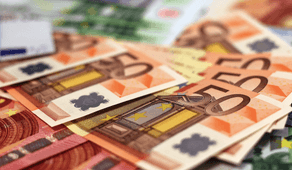
Why do we develop bad habits in good times?
22 februari 2021, PaulWhy do we develop bad habits in good times?
You’ve probably heard this saying before: a skipper who only sails with the wind is a less accomplished skipper than one who can stay on course when facing a headwind, or even a storm. This is no different in our industry. The COVID pandemic era has actually proven favorable and even profitable for many automotive entrepreneurs. The used car market is no exception. Dealers are happier with their sales during this time, however, high demand has decreased the availability of used cars. Unfortunately, what I see over the past year is that many dealers have been sticking to their existing bad habits or compensating for problems by developing unhealthy shortcuts.
Crisis
During times of crisis, many businesses go through and adjust their company processes quickly with just a ‘dust rag’ mentality, and yet they put all invoices under the intense scrutiny of a magnifying glass. This one-sided focus (un) consciously sets the tone within the organization. The message sent is that the company is more concerned with costs than, for example, selling more cars and achieving the needed turn rate. We, at Maarkplats, have also had to deal with some of these short-sighted strategies. Dealers suddenly stopped offering our services. Apparently, some saw us as only an expense rather than an opportunity for increased profit. Indeed, marketing that vision as a ‘profit-builder’ is my challenge as an entrepreneur.

Cost
In good times AND in less favorable environments, a dealer should not only look at costs, but also closely examine their internal processes looking for ways to evolve and improve. “Why do we do it this way and could a different way somehow be more effective? With continuous improvement, dealers actually can get their operation in order and ensure that they maintain an efficient organization! All these efforts will also help ensure the dealership will weather any times of crisis. But what happens when the crisis is no longer there? Or, very specific to today’s issues, does the impact of the current pandemic on used car sales seem smaller than might have been expected?
Do you manage your store the same way as a year ago, and do all of your processes still look the same? Does process improvement no longer matter because you appear to be selling plenty of inventory with no changes at all? In many companies, that critical view disappears very quickly when there is not a storm on the horizon.
Bad habits in good times
When life is good and cars seem to be selling themselves, bad habits can quickly accumulate. Dealers work hard to get to the top, but often it’s easier to get to the top than to stay there! This applies to sports, but also to the auto business. It is disappointing to see sales managers who once were high performing, but now in this new sales environment with COVID, they haven’t figured out how to restructure their process or coach their team with new strategies. Used cars are currently selling themselves, but why do we think a goal of turning inventory six times per year is good when many US dealers are selling 11 times their stock and are still evaluating opportunities hoping to improve that number?
Why are we always satisfied with average achievements? And why do we postpone orders until the next week? Our goal should be to move forward full throttle to close any gaps that have arisen, improve broken processes, motivate the sales teams, and to perform better than we had budgeted.
Challenging times
Discipline is especially necessary in hard times. Timely coaching, effective structure, and adherence to processes are all important to an organization’s success, in good and bad times. Unfortunately, some dealers tighten up their discipline only when things are difficult and their survival as an entrepreneur is at risk. At that point, they demand tight processes and survey their operation with a very critical eye. Why is that approach abandoned when things are getting better? A process-oriented approach combined with internal assessment and a strong oversight can ensure that good times will become excellent times.
Don’t get lax and let bad habits develop in good times. Focus on the attitudes, activities, and strategies that make us successful in bad times and utilize those ALL THE TIME. Yes, success can be equated with hard work, but also challenge yourself to look deeper into process-based work: what needs to be changed and why, what goals are we working toward, what functions are operating effectively, and what rules do we need to follow?




